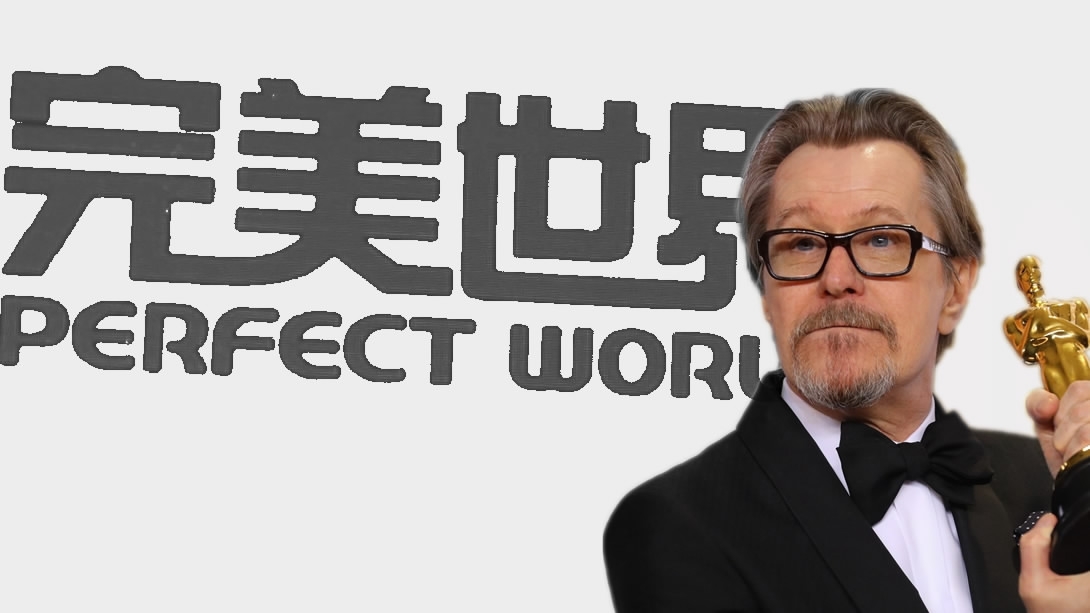Ten years ago, a Beijing-based tech company launched a successful but glitch-ridden online PC game based on China’s historic Three Kingdoms period, very much with a domestic audience in mind.
Yesterday, that same company saw two of its major investment projects pick up Oscars in Hollywood.
The story of gaming studio Perfect World speaks volumes about a blistering decade of growth in China’s gaming sector, as well as a surprising push overseas by many under-the-radar companies into global entertainment.
When it comes to Chinese investment in Hollywood, Perfect World may not be the first name that comes to mind.
The headlines have been taken in recent years by Dalian Wanda, which bought Legendary Studios for 3.5 billion US dollars in 2016, and recently Tencent, which bought a stake in Mission Impossible and Star Trek production house Skydance Media in January.
Perfect World, on the other hand, has kept a relatively low profile. In 2016 the company sealed a 500 million US dollar investment deal with Universal Pictures, the terms of which saw it agree to co-produce 50 Hollywood productions over the following five years.
Two of those co-productions – Phantom Thread and Darkest Hour – picked up Oscars on Sunday night for big prizes including Best Actor, Best Makeup and Hairstyling, and Best Costume Design.
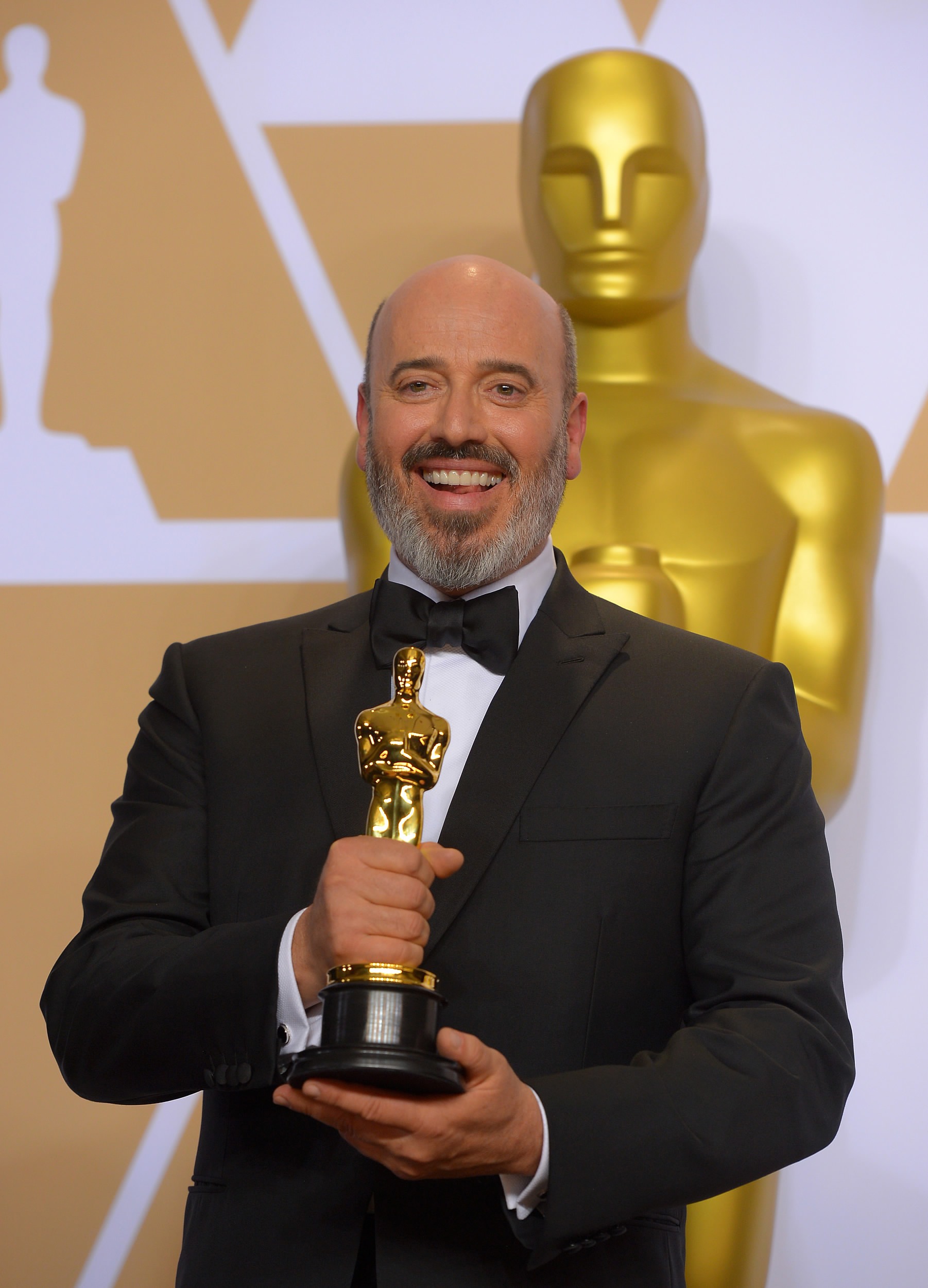
Costume Design winner "Phantom Thread," Mark Bridges backstage at the 90th Academy Awards on Sunday, March 4, 2018. /VCG Photo
Costume Design winner "Phantom Thread," Mark Bridges backstage at the 90th Academy Awards on Sunday, March 4, 2018. /VCG Photo
One other co-production – British historical drama Victoria and Abdul – received two nominations but went home empty-handed.
Working with cult director Paul Thomas Anderson on Phantom Thread and with relatively low budgets of around 30 million US dollars, Perfect World’s support for critical acclaim over box office success contrasts with Wanda and Legendary’s 150 million US dollar production The Great Wall, which was widely panned by critics.
Perfect World was founded in 2004, and was listed on NASDAQ three years later, raising around 188 million US dollars. 2007 was also the year that company founder Chi Yufeng established Perfect World Pictures, a separate entity focusing on the domestic movie industry.
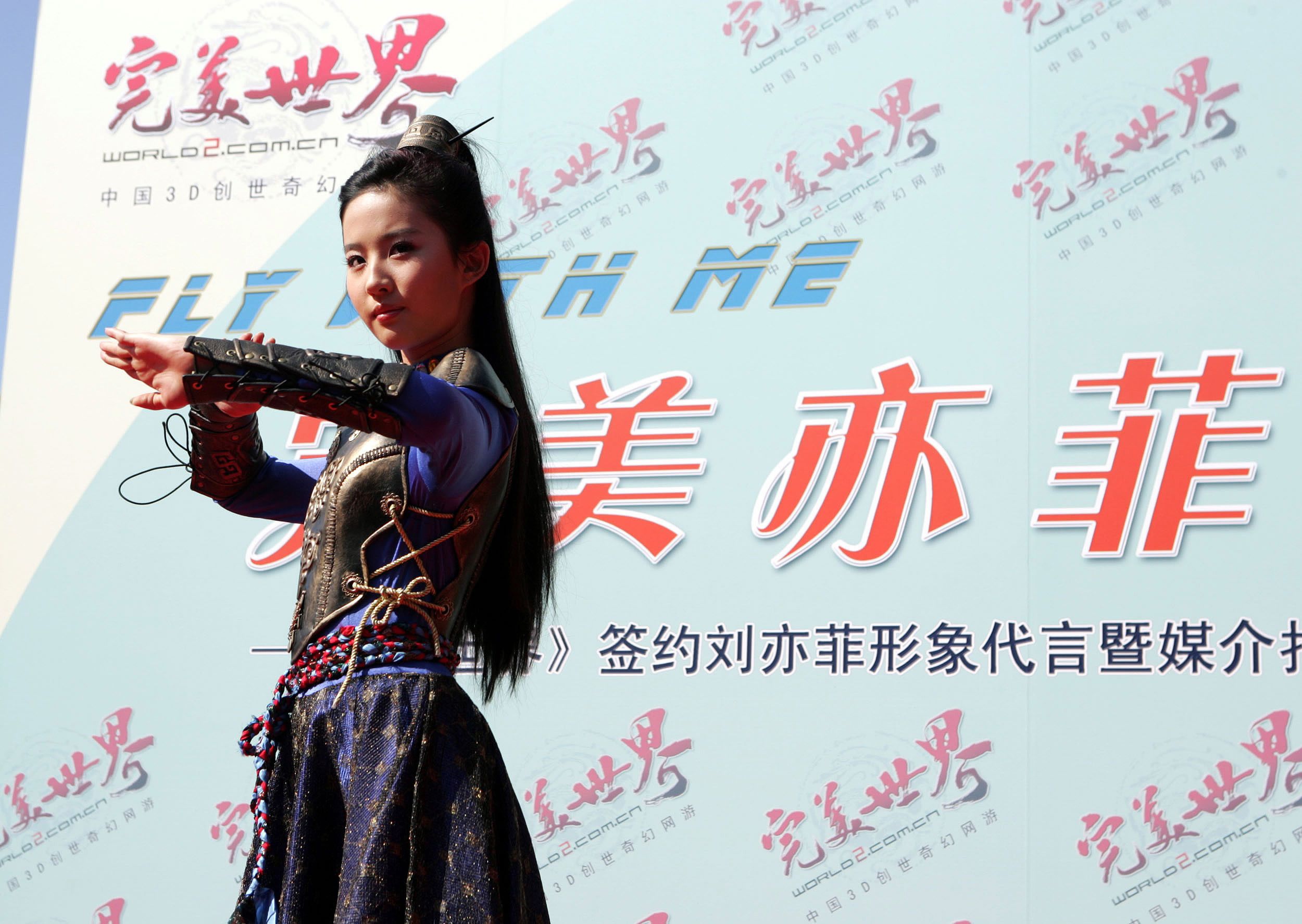
Before they were famous: Actress Liu Yifei was brand ambassador for Perfect World in 2005. Today Perfect World is one of China's biggest games companies, while Liu is one of the country's most popular actresses. /VCG Photo
Before they were famous: Actress Liu Yifei was brand ambassador for Perfect World in 2005. Today Perfect World is one of China's biggest games companies, while Liu is one of the country's most popular actresses. /VCG Photo
Starting out as a developer of PC MMORPGs (massively multiplayer online role playing games), Perfect World developed a number of successful titles with a Chinese cultural flavor that built on the popularity of the Warcraft series in the 2000s.
While titles like Red Cliff and Jade Dynasty were flawed and cheating was prolific, the chance to play as historic figures like Liu Bei, Cao Cao or Sun Quan had mass appeal with Chinese gamers, making Perfect World one of China’s biggest gaming companies.
The mobile gaming boom of the early 2010s spelled the demise of many traditional PC games developers, but the team and financing behind Perfect World combined to see the company continue to produce popular titles for iOS and Android smartphones.
Greater income from its own games enabled Perfect World to purchase the publishing rights for DOTA 2 and Counter-strike: Global Offensive – two of the most popular games in China.
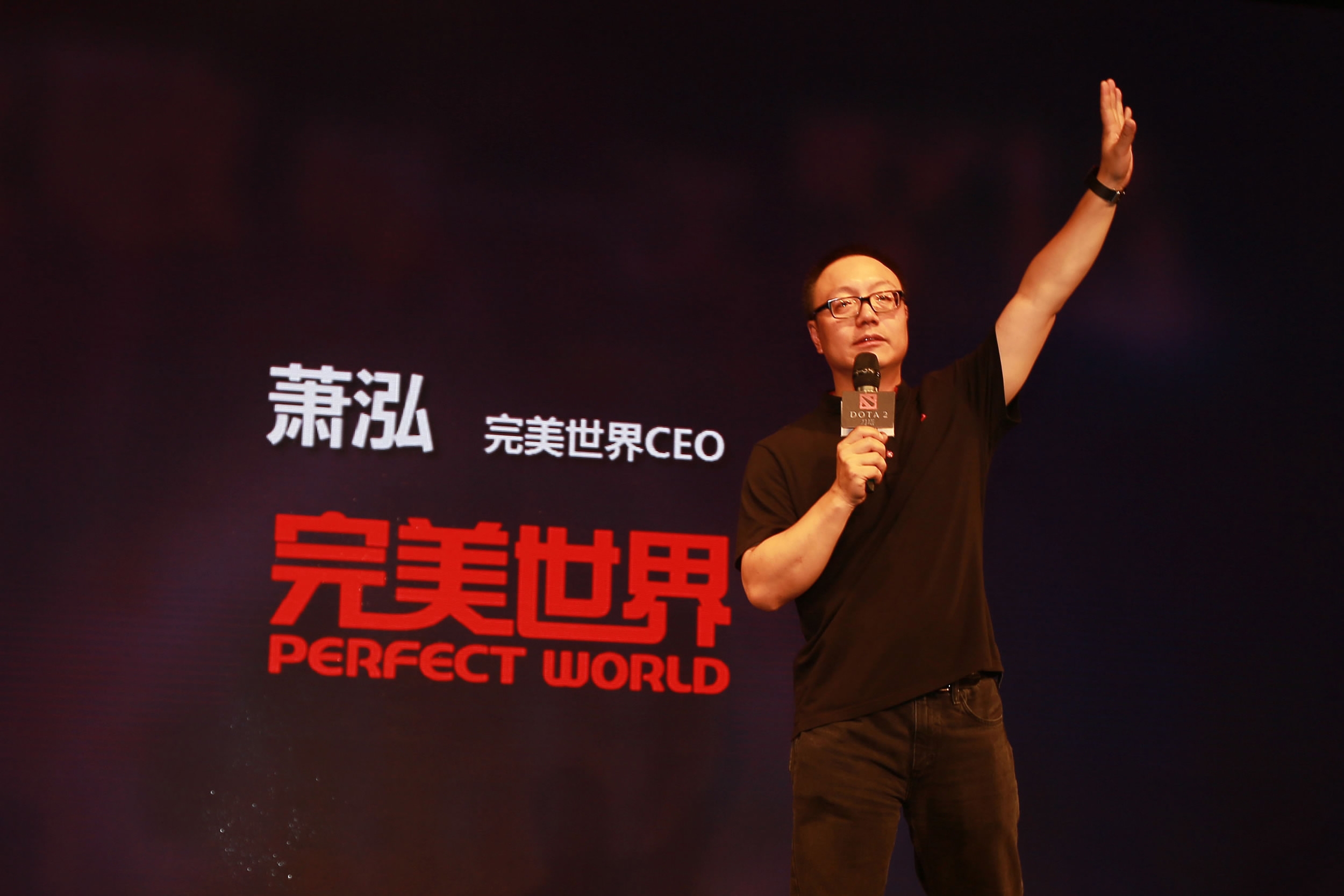
Perfect World CEO Xiao Hong on stage in Shanghai, 2014, after the company became the publisher of popular game DOTA 2. /VCG Photo
Perfect World CEO Xiao Hong on stage in Shanghai, 2014, after the company became the publisher of popular game DOTA 2. /VCG Photo
A report last year suggested China was now the world’s biggest video games market, with 27.5 billion US dollars spent on the sector in 2017.
While Perfect World is currently China’s third biggest gaming company – behind only Tencent and NetEase – it is the country’s largest movie and gaming conglomerate.
After delisting from NASDAQ in 2015, Perfect World and Perfect World Pictures merged and listed in Shenzhen, where it has a market cap of around 6.8 billion US dollars.
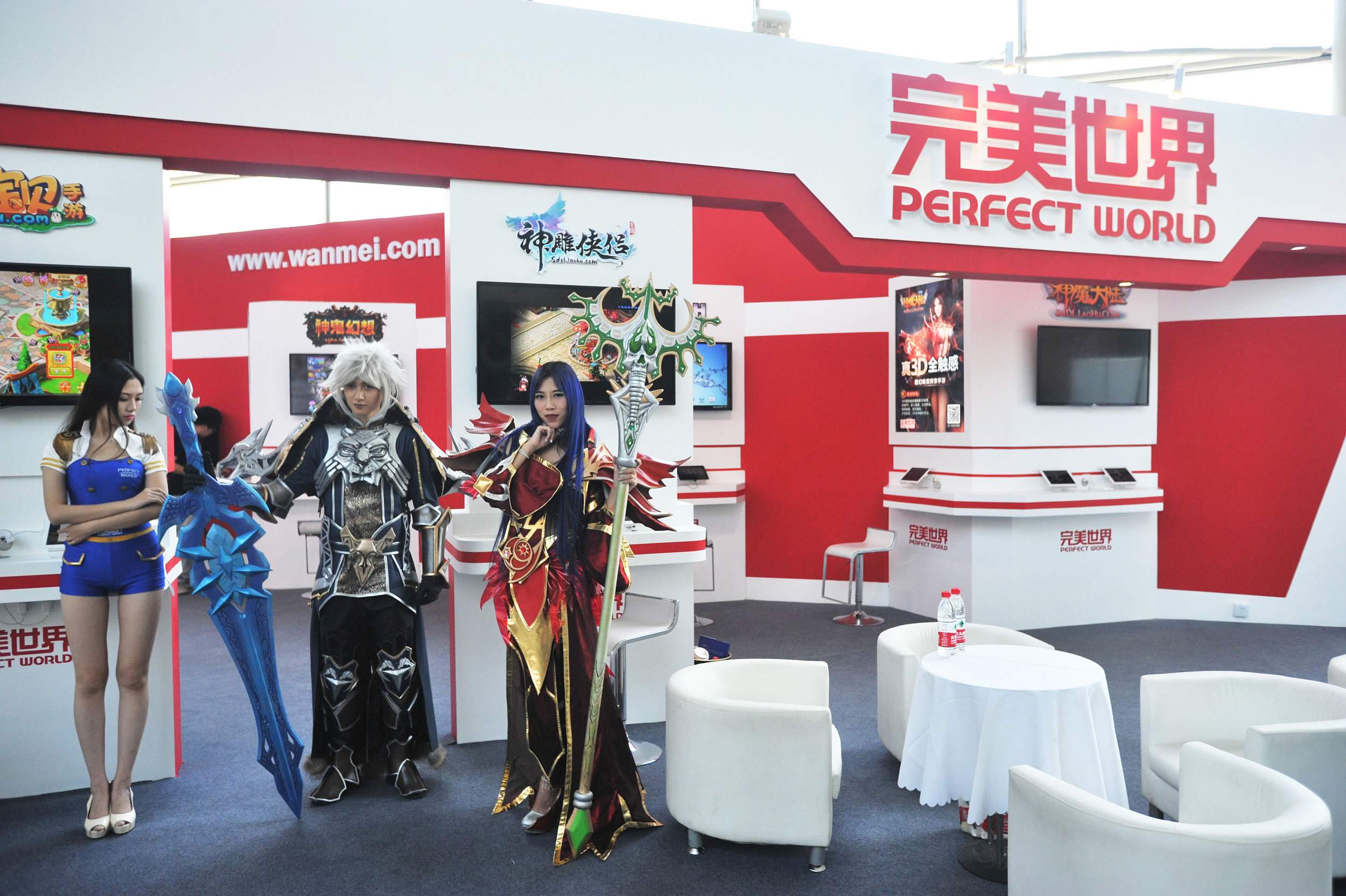
Perfect World's stand at the International Mobile Internet Conference in Beijing, 2014. Many of the company's games are based on Chinese legends or the World of Warcraft series. /VCG Photo
Perfect World's stand at the International Mobile Internet Conference in Beijing, 2014. Many of the company's games are based on Chinese legends or the World of Warcraft series. /VCG Photo
The company’s latest sales figures showed 2016 revenue of 6.16 billion yuan (971 million US dollars), with a profit of 1.17 billion yuan (184.5 million US dollars). While 86 percent of that revenue comes from gaming, 2016 saw the company’s movie arm grow by almost 29 percent.
The company’s unique decision to develop both video games and movies (alongside a successful domestic television production business) looks like a shrewd move which anticipated China’s growing middle class as well as its growing power in the global entertainment industry.

